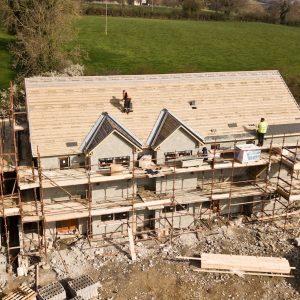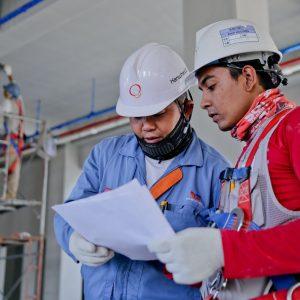If you’re running a construction business, then productivity should matter to you. Unfortunately, construction is an industry with a history of poor management and working practices. There are cultural and technical deficiencies that still need to be ironed out – and the work of doing this will require time and energy.
The rewards, however, can be more than worthwhile. Let’s take a look at a few weak points and try to determine whether your business might be suffering from them.
Work-life balance
Maintaining the right balance between your leisure time and your work can be difficult in construction. While you don’t have to deal with working from home, you might find that the job is such a drain on your time that you rarely have the chance to get home – or at least, not at a reasonable hour.
Maintaining the right balance between work and home can help workers to be more productive while they’re on the job. It’ll encourage the right sleep habits, reduce absenteeism (and presenteeism), and encourage workers to stick around for longer, passing their expertise on to newer workers on site.
Rewarding
By handing out rewards, you can incentivize the right kinds of behavior, and foster productivity on your site. This might be as simple as providing cash bonuses and special perks to workers who consistently meet deadlines, or who implement the practices and procedures you’re looking to instill.
You might also allow workers to reward themselves, by giving them the freedom to work in the way that they see fit. For example, you might create a social environment at work with the help of portable site-friendly Milwaukee radios, and other A/V equipment.
Training
If you’re not investing in training for your staff, then you can’t expect them to stay sharp when it comes to their skills. You might also find that a lack of training opportunities generates feelings of resentment.
After all, if you aren’t investing in your employee’s future, they might conclude that they don’t have a future at the company. As well as reducing staff turnover, providing training will also directly improve onsite productivity, and help to reduce the likelihood of accidents.
Communication
If you want to keep your workers happy and productive, it’s best to keep them apprised of broader developments within your business. If there’s a new project in the pipeline, then you might tell them about it well in advance.
That way, they’ll be better prepared for the change. This goes especially if you’re regularly moving from one small job to the next. Note that communication is a two-way street; you’ll want to also listen to what your workers have to say – it might be that they offer valuable insight into how things can be improved on the ground.





